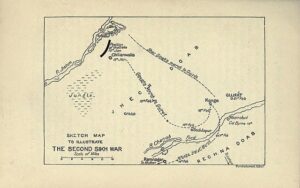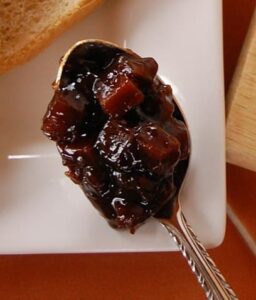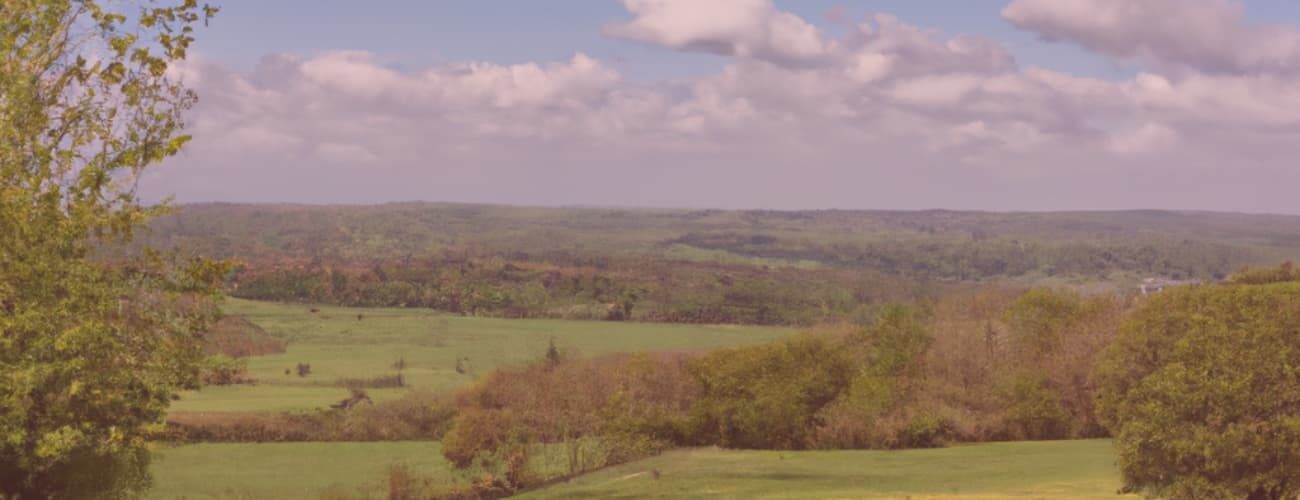•
(Caution: Contains spoilers for Episode: S08E07: Sauce for the Goose)
Diesen Beitrag gibt es auch auf Deutsch.
•
Sam Hardwick leads a small group through the Plummer’s Relish factory where he worked until he retired – past the desks and conveyor belts where the work is done. He tells us that Albert Plummer was a young man in the Punjab when he discovered an excellent relish. When he returned to England in 1851, he brought the recipe for the relish with him and produced it. It was a great success.
It is not known how Albert Plummer came up with the recipe for this delicious relish, which Tom Barnaby also enjoyed. The only clues we have are the year 1851 and the region of Punjab.
It is possible that Albert Plummer was a soldier in the Second Sikh War. Or he was a trader who expanded his network there immediately after the conquest of the Punjab and came across the relish.I suspect the latter, as the episode also mentions that he spent a few years in India before returning to the British Isles – and then made a fortune here. Sounds more like a tradesman, doesn’t it?
India as a British colony

Nevertheless, just to say a few words about the said War: India had been a colony of the British Empire since the 18th century, administered by the East India Company. Its expansion took place in two ways: through full annexation and direct administration (e.g. Punjab after the Anglo-Sikh Wars 1849–1856) or through hegemony over Indian rulers with limited autonomy.
The Punjab, now divided between India and Pakistan, maintained a tenuous alliance with the Company until the mid-19th century. After the death of Maharaja Ranjit Singh in 1839, his empire fell into disarray, prompting the Company to expand its military presence.
When the Sikh army invaded British territory, Patrick Vans Agnew and Lieutenant William Anderson were sent to Multan in 1848, where they were killed by rebels. Governor-General Lord Dalhousie and Commander-in-Chief Sir Hugh Gough delayed the response due to a lack of transport and supplies.
The war lasted from November 1848 to March 1849, ended with a British victory and the annexation of the Sikh Empire. Albert Plummer could therefore have lived in the Punjab for a maximum of two years, as it was not part of the colony before that.
Cultural transfer of flavours
In economic terms, the British Empire and its colony in India were closely linked. British goods were sold in India without tariffs and duties, but domestic Indian products were heavily taxed. Heavy taxation also applied to imports of Indian products into the United Kingdom of Great Britain and Ireland, but not to raw cotton. This was imported, processed in British factories and then sold on. The colony was thus both a supplier and a market for cotton resources.
The same was true of food, since British food was very bland and India had many spices unknown in Europe. Yes, the conquest of India as a colony was not primarily for the land, but for direct access to flavours and spices, and other resources.
British people – whether they came to India as traders, troops or officials – learned about the culture and the food. Sometimes they settled and traded from India, or brought new spices and recipes back to the British Isles after a few years in South Asia. Like Albert Plummer.
These included curries, but also chutneys and relishes. These canned mixtures of onions, brown sugar, spices and fruit or vegetables were a way of livening up their own unexciting cuisine. The difference between the two is that chutney is a jelly-like sauce, while relish is more like mustard.
Film locations

Branston Pickle, a popular condiment in Britain, may have been the inspiration for Plummer’s Relish. But the film was actually shot in a fruit canning factory. The Plummer’s Relish Factory has two locations in real life, since the exterior scenes were shot at The Maltings in Amersham, Buckinghamshire, and the interior scenes in Tiptree, Essex. Both buildings are typical 19th century factory buildings.
The Britannia Fruit Preserving Company in Tiptree was founded in 1885 by Arthur Charles Wilkin and two other men. Their idea was to make jam without glucose, colouring or preservatives, but with all the flavour. They were successful. The company’s success was boosted by the rail link between Kelvedon and Tollesbury via Tiptree. I can’t find any reference to the interior, and it may well have been heavily modified for the filming of the episode.
The Maltings is, as the name suggests, a malt house founded in 1818. The two-storey, rubble-brick and slate-roofed building was built in 1829. But exactly 100 years later the brewery had to close. The building has been on the National Heritage List since 17 May 1984 and is used alternately as shops and offices. In 2021, a new owner was sought for the building, according to several websites, but it is also in need of renovation.
The real secret
Albert Plummer’s carefully guarded recipe in the safe actually has a story of its own. Anselm Plummer admits that he was looking for the Plummer’s relish recipe in the safe. What he doesn’t know, though, is that it is completely worthless because it is simply inedible. Albert Plummer used it to poison his housemaid. He didn’t create the relish, his cook did.
And after all that has happened, even the new recipe for Plummer’s Relish is inedible for Tom Barnaby.
Read more about Midsomer Murders & History
The Chronology of Midsomer County by Year or by Episodes
Deep Dives into Midsomer & History
This is an independent, non-commercial project. I am not connected to Bentley Productions, ITV or the actors.

Literature
- Bailey, Alison: The hidden community in the Maltings. In: Amersham Museum. (April 2021)
- Dalrymple, William: The Anarchy. The Relentless Rise of the East India Company. New York 2019.
- Singh, Amarpal: The Second Anglo-Sikh War. Stroud 2017.
- Sunder, Kalpana: How Indian food curried favour with the British, and vice versa. In: South China Morning Post (29/01/2022).
First published on MidsomerMurdersHistory.org on 26 January 2024.
Updated on 20 January 2026.


7 thoughts on “Albert Plummer in India”